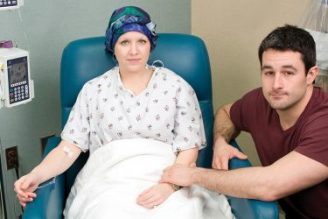What is an Advance Care Directive – How does it work?

An Advance Care Directive (‘ACD’), which is also known as a ‘Living Will’, is a document created by you about your healthcare wishes. It is used for future healthcare decision making if you are unable to make and communicate your own decisions.
An ACD is a different document to an Enduring Guardianship. An Enduring Guardianship is a legal form of appointment by you of a substitute decision maker when you have lost capacity, to decide where you live, what health care and personal services you receive and to consent to medical and dental treatment.
An ACD is a statement or decision made by you (rather than by your Enduring Guardian or some other Person Responsible for you) as to what types of healthcare you will accept, and what types you do not want.
A decision of the NSW Supreme Court in Hunter and New England Area Health Service v A in 2009 has made it clear that ACD’s are recognised as valid by the Common Law in NSW. In that case Mr A had been admitted to hospital suffering septic shock and respiratory failure and showing a decreased level of awareness. Although all appropriate treatment had been given to Mr A, his condition deteriorated and he displayed renal failure. Mr A was being kept alive by mechanical ventilation and kidney dialysis. The hospital became aware of an ACD written by Mr A in which he indicated he would refuse dialysis. The hospital sought a declaration from the Court as to whether the ACD was valid and that it would be justified in complying with Mr’s wishes in his ACD. The Court held that Mr A’s ACD was valid and stated:
“For there to be a valid Advance Care Directive it is not necessary that the person giving it should have been informed of the consequences of deciding, in advance, to refuse specific kinds of medical treatment. Nor does it matter that the person’s decision is based on religious, social or moral grounds rather than upon (for example) some balancing of risk and benefit. Indeed, it does not matter if the decision seems to be unsupported by any discernible reason, as long as it was made voluntarily, and in the absence of any vitiating factor such as misrepresentation, by a capable adult.”
Accordingly, if an ACD is valid, it must be followed. Health professionals and Persons Responsible for you have no authority to override a valid ACD. If they are in doubt, they must approach the Court for direction.
Unlike other States, in NSW there isn’t a specific form to use for an ACD. For an ACD to be valid and enforceable:
- you must have had capacity when you made it. Capacity means that you understand the facts and choices involved, can weigh up the consequences, and communicate the decision.
- it was made voluntarily (a witness to your signature is recommended).
- it has clear and specific details about treatments that you would accept or refuse.
- it is current and applicable to the situation you are in at the time.
If you make an ACD, you can retract it or change it as often as you like as long as you have capacity when you do so. However, you cannot in your ACD demand treatment that your doctors think would be of no benefit to you, or ask someone to actively or deliberately end your life.
Who makes medical decisions for me if I’ve lost capacity and do not have an ACD or Enduring Guardianship?
Section 37 of the Guardianship Act (NSW) permits medical or dental treatment to be carried out without a person’s consent if the doctor or dentist considers the treatment is necessary as a matter of urgency to save the person’s life, or to prevent serious damage to the person’s health. Minor treatment may also be carried out without consent if there is no Person Responsible for the person or if that person can’t be contacted or refuses to make a decision. If there is no emergency, doctors must get consent from their patient or their patient’s Person Responsible prior to any proposed treatment.
Section 33A of the Guardianship Act (NSW) establishes a hierarchy (in descending order) of Persons Responsible to make medical or dental treatment decisions for another person. They are:
- The person’s Enduring Guardian;
- The person’s spouse;
- The person’s carer;
- A close friend or relative of the person;
If all of these are not available, or all refuse to make a decision, the NSW Civil and Administrative Tribunal will make the decision.
If you would like to discuss or need more information about Advance Care Directives or your other estate planning needs such as your Will, your Power of Attorney or your Enduring Guardianship, please call Lisa Delalis on 02 4731 5899 or email willsestates@batemanbattersby.com.au.
Download PDF Version:
What is an Advance Care Directive - How does it work?